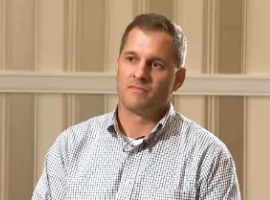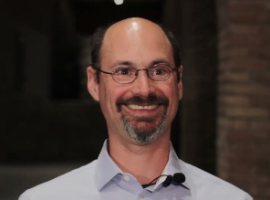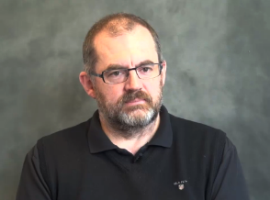InfoQ Homepage DevOps Content on InfoQ
-
Tom Limoncelli on DevOps and Automation
Tom Limoncelli explains the reasons for DevOps, how to choose which steps to automate and which not, enabling continuous deployment, and much more.

-
Dan Craig on Bringing a Federal Agency Up to Speed on DevOps
Dan Craig talks us through the process of bringing a federal agency up to speed on build, test and application release automation. And how to navigate the inherent cultural and political challenges.

-
Kolton Andrus on Breaking Things at Netflix
Kolton Andrus is working as "chaos engineer" at Netflix which means he is getting paid for breaking things in production. We are talking with about how to improve overall system quality by injecting failures in production systems, about the idea of "anti-fragility" in the context of software and about how engineering teams of all layers can benefit from a failure injection infrastructure.

-
Ian Culling on DevOps and the Latest Innovations from VersionOne
Ian Culling talks about the state of agile adoption, how organisations want to buy "the DevOps" and new features in the VersionOne product suite

-
J. Paul Reed on Healthy Postmortems, Complex Systems and Resilience
Reed explains what a popcorn retrospective is, what a healthy DevOps organization looks like (hint: resilience and learning), why blame is not always evil and why automation is not going to save us. Also root cause analysis is not a "thing" and a lot more food for (DevOps) thought!

-
Sylvia Isler on Migrating to and Operating Microservices
Everybody has been talking about microservices for at least two years now and there are a lot of companies trying to migrate to that promising new architecture. We spoke to Sylvia Isler - VP of architecture at VMTurbo - about the reasons to migrate to microservices and how to turn an existing monolith into a distributed, resilient services landscape.

-
Hannah Mittelstaedt on Restructuring Mobile Dev Teams
Everybody is talking about Conway’s Law these days - tear down organizational boundaries where they are not useful. Etsy did so in the space of mobile development: there are no longer dedicated mobile dev teams, but every developer is trained on mobile and every team is doing mobile development. We talk to Hannah Mittelstaedt about the benefits and drawbacks of such a transformation.

-
Mary and Tom Poppendieck on the Role of Architects, DevOps, and Diversity in IT
Mary and Tom Poppendieck talk to Charles Humble about continuous delivery, architects, management and other senior roles in IT, and diversity in the industry.

-
Trisha Gee on the Java Eco-System
What's the impact of Java 8 on the Java ecosystem and why did we have to wait so long for these improvements? Is the JCP the right tool for driving innovation and do we need a really new version of Java? One that would not need take care of backward compatibility? We met Trisha Gee - a great member of our Java community - in New York to talk about these topics.

-
Randy Shoup on Microservices, the Reality of Conway's Law, and Evolutionary Architecture
Randy Shoup talks about designing and building microservices based on his experience of working at large companies, such as Google and eBay. Topics covered include the real impact of Conway's law, how to decide when to move to a microservice-based architecture, organizing team structure around microservices, and where to focus on the standardization of technology and process.

-
Anil Madhavapeddy on Unikernels and OCaml
Anil Madhavapeddy describes why unikernels have important security properties, how they can be built, and how they can be utilised alongside of Docker containers. He stresses the importance of type safe languages, particularly OCaml, which was used for the Mirage OS project, but also touches upon Go and Rust.

-
Stephen Thair on Enterprise DevOps and Cultural Change
Steve Thair on introducing DevOps in large organizations, the particular challenges they face (from ROI based finance models to technical debt to improving communication) and how to address them.
